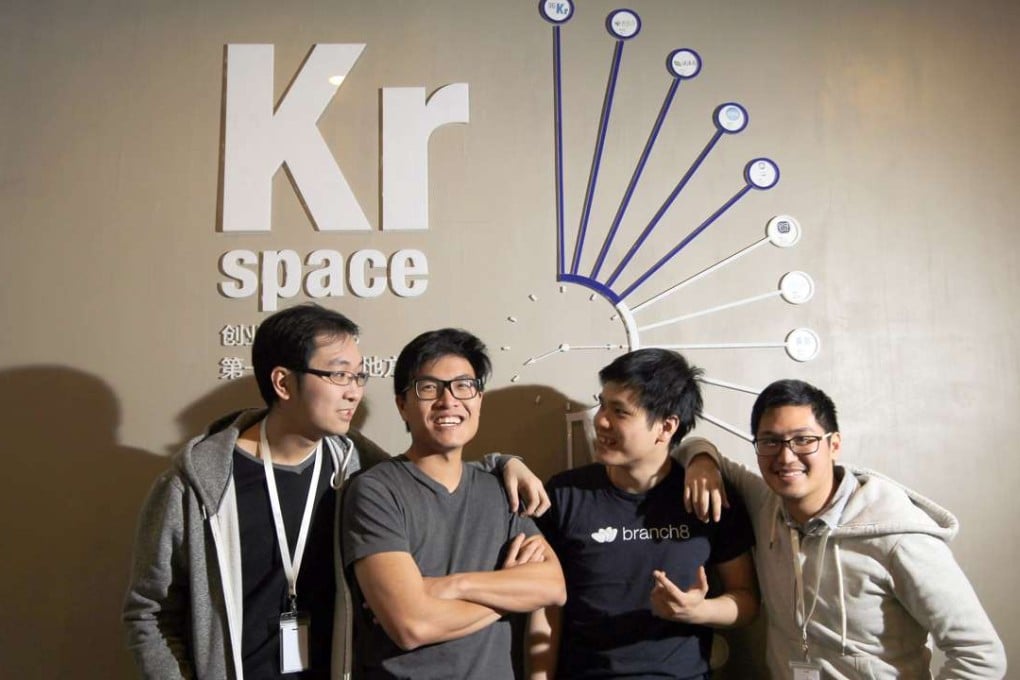A bigger pond: why Hong Kong start-ups are taking the plunge in mainland China
Hong Kong start-ups are looking across the border to tap into bigger markets and greater funding

About three months ago Matt Li Chun-shing, 27, and four of his colleagues left Hong Kong for a visit to Beijing, checking out mainland market opportunities for their new business Branch8.
They had long before received US$120,000 from Y Combinator, the Silicon Valley start-up fund that was an early investor in ventures like Dropbox and Airbnb.
Y Combinator also invested in Hong Kong start-ups 9GAG, a social media website dedicated to humorous content, and cloud-based mobile collaboration tool TeamNote.
Li was surprised by the atmosphere in the capital, saying it was comparable to Silicon Valley in the US. The firm is now convinced a large part of its future is on the mainland.
Making a leap into the mainland is a tough task for Hong Kong start-ups, but the road is even tougher in their hometown where the fund opportunities and market are much smaller.
By launching their ideas onto a bigger stage with a huge number of users and better access to funds, young Hong Kong entrepreneurs have a better chance of making their mark.
Branch8 is a website that helps merchants list and manage products across various e-commerce marketplaces such as Amazon and Lazada.